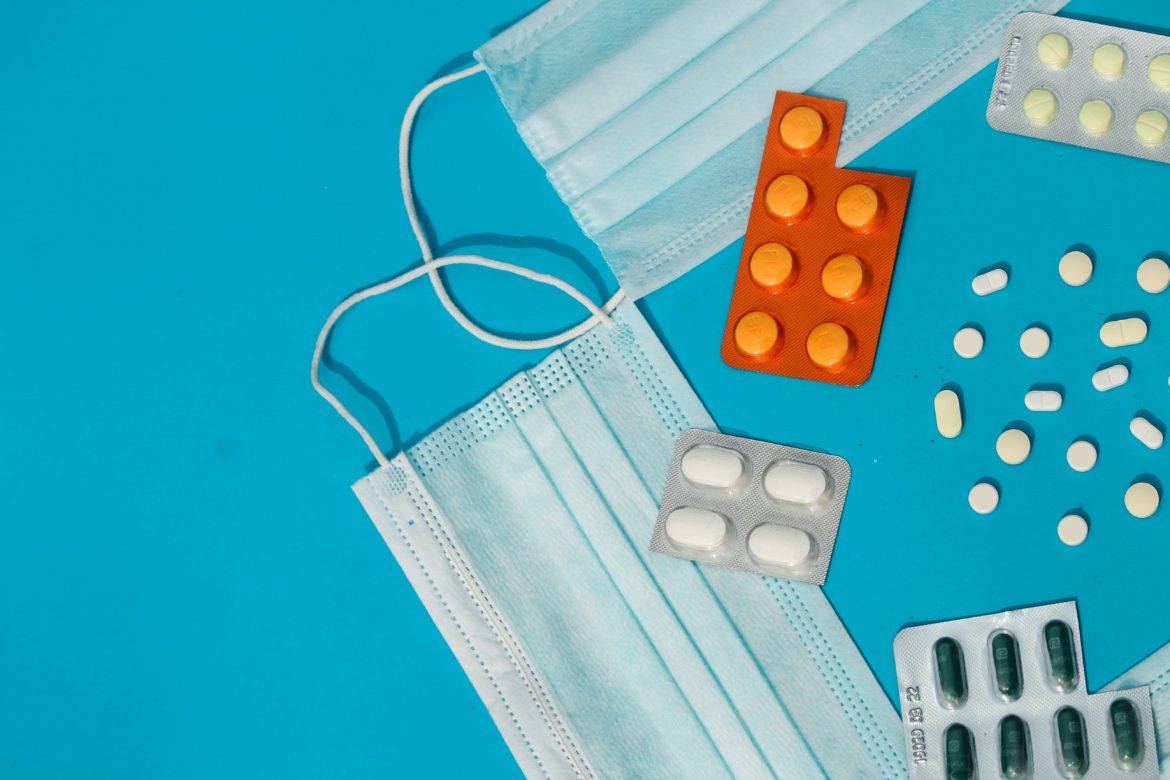The Covid-19 pandemic has shifted our societies in many ways, from new communication metaverses to evolving workplace rules –however, nothing has compared to the rapid innovation occurring in the field of medicine. Since the premises of the pandemic, vaccination has been the only effective medical response; however, a new drug called “Molnupiravir” has been shown to increase the vaccination’s effectiveness, and thus reduce deadly COVID-19 cases.
What is Molnupiravir and how does it effectively deter the deadly consequences of COVID-19?
“Molnupiravir” comes from the Old Norse word “Mjölnir” referring to Thor’s Hammer. The pill’s successful trials can explain the level of confidence in its name; “five days after dose administration, 0% of those who received the dose were positive for the virus (0/47)”. In fact, the drug was created by Emory University searchers using the NHC/EIDD-2801 molecule –and is predicted to reduce by half the chances that a person infected by the coronavirus would need to be hospitalized. This drug was in fact licensed to Ridgeback Biotherapeutics, a Miami-based biotechnology company that had previously developed a monoclonal antibody for Ebola, in addition to Merck (pharmaceutical giant).
However, this antiviral drug cannot be taken as freely as any regular pain killer. In fact, the treatment should start within five days of the first COVID-19 symptoms (fever, coughing, headaches, runny nose, sore throat, diarrhea, and abdominal pain among others). It consists of forty pills: four capsules taken twice a day, for five days. Moreover, as Yale medicine Dr. Shaw explains; “when the drug enters your bloodstream, it blocks the ability of the SARS-CoV-2 virus to replicate”. It integrates a similar structure to that of an RNA into the virus’ genome, reducing and potentially eliminating the virus’ possibility of replicating and spreading –thus killing its cells. Molnupiravir is additionally said to be effective against any emerging variant (such as the latest Omicron variant for example). However, it is still important to remember that Molnupiravir is not an alternative to the vaccine, but a compliment –as vaccination, along with social distancing and personal hygiene, is still to this day the best form of protection against COVID-19. Similarly to the vaccine, these pills won’t completely eradicate COVID-19, but reduce one’s chances of contracting severe versions of the virus, being hospitalized and dying. It could also possibly reduce its spread, especially in low-income, developing countries that have limited access to healthcare.
Can Molnupiravir be effective in fighting against healthcare inequalities in the Global South?
Can these new “covid pills” therefore shine a light on the correlation between high COVID-19 cases, deaths and newly endemic variants emerging in developing countries and their limited access to healthcare? In fact, Molnupiravir may be an effective solution to the asymmetric distribution of vaccine doses in developing countries in South-East Asia or Subsaharan Africa for instance. As NYTimes Journalist Stephanie Nolen explains; “Merck has granted a royalty-free license for its promising Covid-19 pill to a United Nations-backed nonprofit in a deal that would allow the drug to be manufactured and sold cheaply in the poorest nations(…)”. This is a significant watershed moment; which would allow many communities to have facilitated access to the drugs which would greatly benefit their livelihoods.
In fact, the drug is expected to be marketed in developing countries for $20 per 5-day treatment, compared to the $712 per course that the U.S. government has agreed to pay for its initial purchase. Molnupiravir could be easier to manage and purchase, rather than dealing with the paperwork and process of vaccination centers. Moreover, this would also be beneficial from the point of view of the manufacturer: vaccines are lengthy and complex to produce and preserve (they require a certain temperature of refrigeration ranging from -70°C for the Pfizer-BioNTech vaccine to -20°C for the Moderna vaccine, and are difficult to travel with). On the other hand, pills are very easy to manufacture and transport, as they require no refrigeration, and are manufactured in dry, cardboard and plastic packaging.
However, this royalty-free licence grant is restricted to certain countries at the expense of others. For instance, middle-income countries that experience a corrupted system with limited access to adequate healthcare, such as Chile, Colombia, Thailand, and Mexico to name a few, will not be incorporated in the license. They will therefore have difficult access to the antiviral pills on top of having difficulty in obtaining vaccines for every citizen.
This important blemish in the international pharmaceutical industry, and especially the UN, must be assessed and reevaluated in order to equitably cater to those in need with responsible and adequate healthcare. In fact, the PLOS Medicine staff explains; “the pandemic continues to enable those with money and power to expand their influence—making decoloniality, solidarity, and distribution of power, knowledge, and resources (e.g., vaccines) even more urgent. The fact that HICs have reserved enough COVID-19 vaccine doses to vaccinate their own population multiple times over is a stark indication of power asymmetry in global health”.
These pressures have advocated for change in the international pharmaceutical industry, which ought to abide by the universal right of access to healthcare – because healthcare is a universal human right.
Edited by Yu Xuan Zhao

Carla is a U2 student at McGill studying International Development in the Honors Program with a concentration in Environment. She’s a citizen of the world; as she has French nationality, is of Italian descent, was born in Sweden, lived in the USA and is now living in Canada! Some of her main interests include human rights and most particularly women’s rights, climate change mitigation and poverty alleviation.

